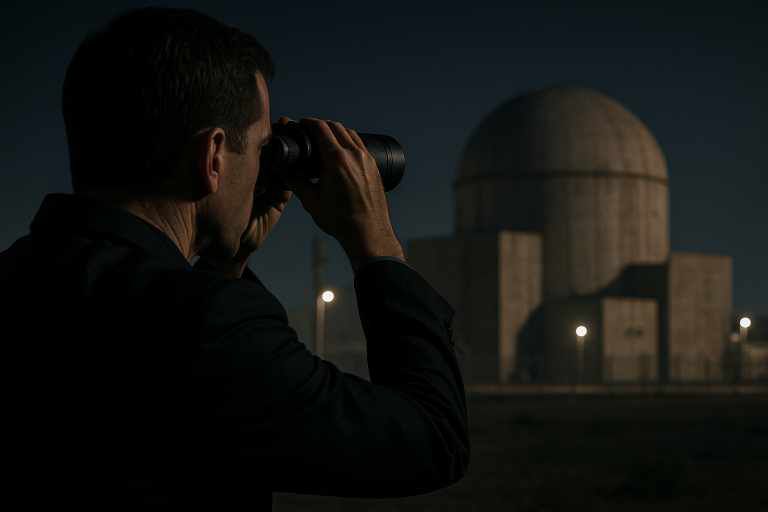The recent ceasefire between Israel and Iranian-backed groups may have halted open hostilities, but the shadow war between Israel and Iran remains very much alive. Central to this covert battlefield is Israel’s intelligence agency — Mossad — and its relentless focus on Iran’s nuclear program.
This raises a critical question:
Will Mossad continue to monitor and disrupt Iran’s nuclear ambitions even after the ceasefire?
The answer, rooted in historical patterns and strategic priorities, is a definitive yes.
Mossad’s Mission: Stopping a Nuclear Iran
From the Israeli perspective, a nuclear-armed Iran poses an existential threat. This viewpoint is not just political rhetoric but a long-standing national security doctrine. As a result, Mossad has maintained Iran’s nuclear activities as one of its top operational priorities — regardless of diplomatic developments or temporary ceasefires.
Mossad’s surveillance of Iran is not dependent on periods of war or peace. Rather, it is a perpetual intelligence campaign involving espionage, sabotage, cyber warfare, and targeted eliminations.
Historical Evidence of Mossad’s Operations Against Iran
Mossad has a long track record of aggressive operations aimed at halting Iran’s nuclear capabilities — often during peacetime. A few notable examples include:
1. Theft of Iran’s Nuclear Archive (2018)
Mossad agents infiltrated a secret warehouse in Tehran and smuggled out over 100,000 documents and files related to Iran’s nuclear project. This operation exposed Iran’s secret weapons-related research, despite its public claim of a peaceful program.
2. Targeted Assassinations
High-profile Iranian nuclear scientists, including Mohsen Fakhrizadeh in 2020, have been eliminated in precision operations widely attributed to Mossad. These attacks typically occurred during periods of no direct warfare.
3. Stuxnet Cyberattack
In cooperation with the CIA, Mossad launched a cyber operation that introduced the Stuxnet virus into Iranian nuclear facilities. It destroyed a significant number of uranium-enriching centrifuges at the Natanz facility, setting back Iran’s nuclear progress without firing a single bullet.
These actions reveal a consistent pattern: Mossad operates most effectively in times of quiet, using intelligence, stealth, and precision to achieve strategic goals.
Post-Ceasefire: Why Monitoring Will Continue
1. Iran’s Nuclear Progress Doesn’t Pause
Even during ceasefires, Iran continues its uranium enrichment, construction of advanced centrifuges, and development of underground facilities like Fordow and Natanz. These developments are closely monitored by Mossad using satellite surveillance, cyber intelligence, and human assets.
2. The Shift to Cyber and Covert Warfare
Modern intelligence warfare thrives in peacetime. Ceasefire conditions allow Mossad more operational flexibility in:
- Deploying surveillance drones
- Hacking communications
- Penetrating supply chains
- Infiltrating organizations with undercover agents
3. Maintaining Strategic Edge in the Region
Israel’s security doctrine emphasizes preemptive defense, meaning threats must be neutralized before they fully emerge. Mossad plays a frontline role in this strategy by delivering real-time intelligence to policymakers and, when necessary, executing high-risk missions to sabotage Iran’s progress.
Global Implications of Mossad’s Continued Surveillance
Mossad’s relentless focus on Iran is not just an Israeli concern. It also:
- Influences international diplomacy, especially with the United States and European Union
- Impacts the viability of the Iran Nuclear Deal (JCPOA), which Israel opposes
- Raises regional tensions, particularly with Iran-aligned states and militias in Lebanon, Syria, and Iraq
In essence, the Israel-Iran intelligence war is a critical driver of Middle Eastern geopolitics, and Mossad’s post-ceasefire operations will continue shaping that dynamic.
Conclusion
The ceasefire between Israel and Iran-backed groups may have quieted the guns, but the silent war continues. Mossad, bound by national policy and historical momentum, will not ease its grip on Iran’s nuclear ambitions. If anything, its operations will become more targeted, more secretive, and possibly even more daring.
As long as Iran moves closer to nuclear capability, Mossad will remain vigilant — with or without a ceasefire.
Check More:

